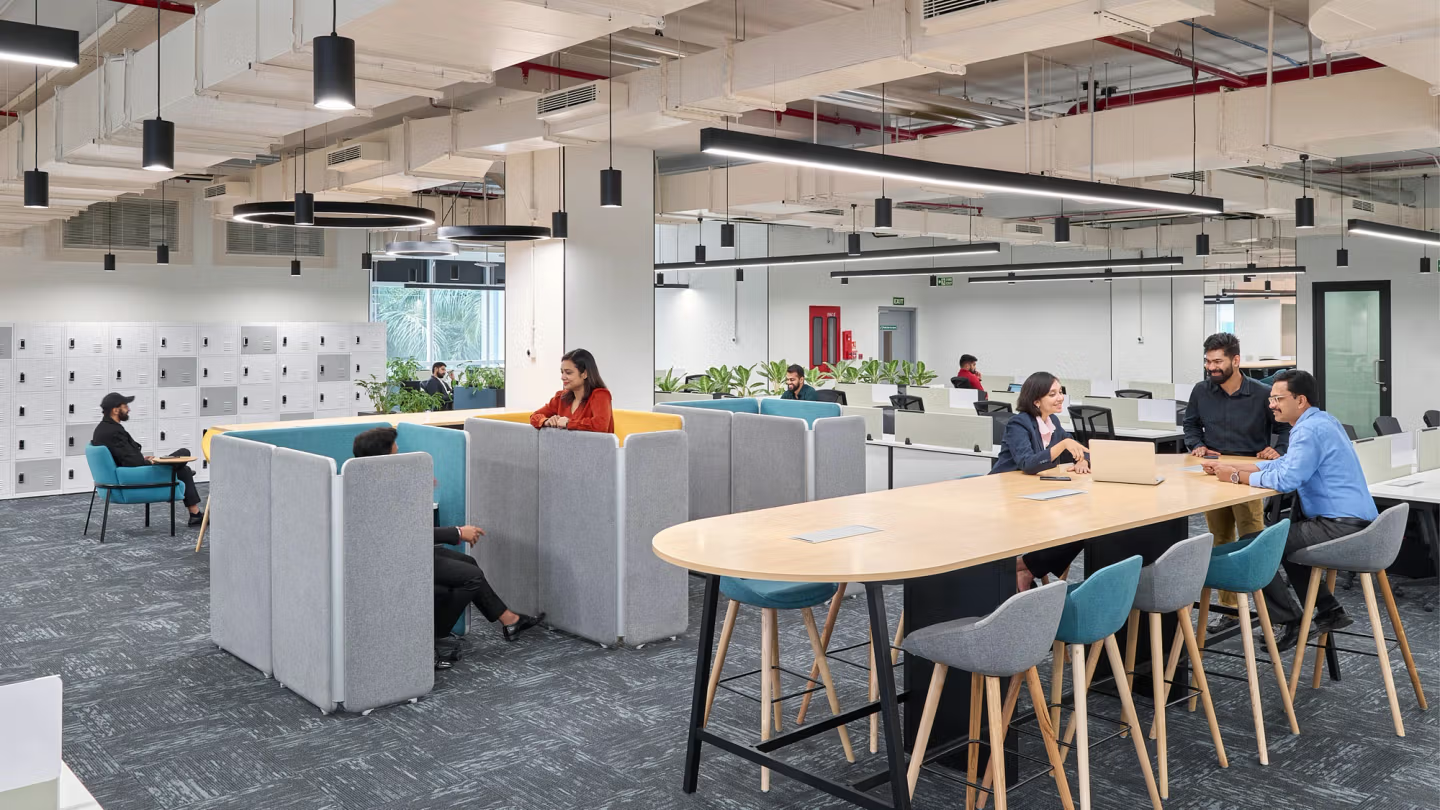Table of Contents
- Introduction
- Serviced Offices
- Understanding the Pro & Cons of a Serviced Office Space
- Managed Offices
- Understanding the Pros and Cons of a Managed Office Space
- Co-working Spaces
- Understanding the Pros & Cons of Co-working Spaces
- Which Option is Right for You?
- Conclusion
Introduction
The task of choosing an office for your business might be daunting at times, especially when it could be your first-ever office space. If you are a freelancer, a new startup in the market, or an established firm – getting the appropriate space matters in the productivity that you create. The workspace you select will influence how you operate daily, the mood of your team and potentially even the perception of your brand.
Today, businesses have several options: serviced offices, managed offices and co-working spaces. Every option has pros and cons depending on several factors such as the size of your company, its requirements and future plans. But how do you know the one that is appropriate for you?
Let’s break down each type of office space to help you make an informed decision.
Serviced Offices

A serviced office is indeed a room filled with utilities, ready to move in. Such office spaces are basically plug-and-play setups where everything is put together as neat one monthly payment from rent to utilities, furniture to conference room access, cleanings, security, mail to maintenance services. Signing a one-to-two-year contract in advance is enough for most businesses to hire a serviced office space. Hence, ideal for businesses seeking a cost-effective solution to hassle-free, short-term office space.
Understanding the Pros and Cons of a Serviced Office Space
Pros
- Flexible Contracts: Serviced offices usually provide short agreements. This is great for businesses that do not want to have long-term commitments.
- Elimination of initial expense: Since the offices are furnished and equipped, it would save heavy expenses in setting up costs.
- Fully Equipped & Convenient: Everything you need—from office furniture to high-speed internet—is ready to go from day one.
Cons
- Limited Customization: There would hardly be any control over the layout and design of office space, which might restrict your company if it were to require specific looks or even atmosphere.
- Communal Limitations: The serviced office provider controls all reception areas, shared working spaces, and breakout spaces. You will have a private office space, but other amenities such as kitchens and meeting rooms are going to be shared by other businesses.
Managed Offices

Compared to serviced offices, managed office space gives you more freedom. While that space is leased from a landlord, you can still customize and design the entire office according to specific specifications. Usually, managed office spaces come under contractual arrangements for a longer duration (typically 3 years or more) and thus offer better flexibility and a higher upfront commitment counterpart.
Understanding the Pros and Cons of a Managed Office Space
Pros
- Freedom to Customize: Companies can customize any portion of their office environment on the clear landscape of the managed office. It completely caters to individual business customizations and requirements. You design everything from layout to branding in the way the space feels, thus contributing to making an environment reflecting your company culture.
- Long-Term Stability: Managed offices assure businesses by providing them with a functional workplace for decades to come. You can use this information to plan your business long-term.
- Privacy: As compared to serviced offices, Managed offices bring you closer to a complete sense of privacy. You do not share it with other companies, thus giving you an even closer working environment.
Cons
- Higher Initial Investment: Managed offices are quite expensive to set up, especially when it comes to furniture and other personalization costs.
- Longer Transition Period: Moving into a managed office typically takes longer because you need to organize the area to meet your requirements.
- Long-Term Commitment: Managed offices often come with lengthy contracts, which might be daunting if your business is still in its early stages or uncertain about future growth.
Co-working Spaces

There has been an enormous rise in co-working spaces in recent years, especially among freelancers, young innovators and small businesses. Co-working spaces offer a common working environment within which companies can rent desks or even offices, with options for flexible membership. Co-working spaces spread beyond working offices, but also provide opportunities for developing a community atmosphere and availing networking opportunities, so good for smaller businesses or perhaps an entrepreneur all alone.
Understanding the Pros & Cons of Co-working Spaces
Pros
- Affordability: Coworking space always remains affordable, especially for small businesses not needing a full office.
- Ultimate Flexibility: Most co-working spaces are on a month-to-month basis, so there is no long-term lease holding you back.
- Collaboration and Networking: Working since then alongside many other businesses can start collaborations or partnerships, new opportunities ahead.
Cons
- Limited Privacy: Co-working spaces are mostly open-plan and shared; that means you have other people and distractions.
- Lack of Customization: Though some co-working spaces offer private offices, the whole branding and set may not be customizable as a managed office
- Distractions: Contributors to the open layout and the atmosphere could easily create noise and disturbances that will put a challenge to companies that need a relatively quiet and focused workspace.
Which Option is Right for You?

When it comes to the selection of different serviced offices, managed offices, or co-working spaces, it should be understood and considered what the present needs of the business are and possible future growth.
Serviced Offices: Perfect for businesses that are looking for a flexible and cost-effective solution with minimum setup. Best suited for short-term projects, remote teams, or businesses that are testing a new place.
Managed Offices: These are best for stable, long-term businesses looking into more control over their space and customizations of the office environment to reflect their brand and values. They suit progressive businesses that need staunch bases more permanently.
Co-working Spaces: Best suited for startups, freelancers, and small teams seeking flexibility and connectivity at lower costs, co-working spaces add a more synergetic environment, which could be beneficial for those who work well in collaborative spaces.
Conclusion
Ultimately, for what kind of business your company will want office space will boil down to budget, flexibility, privacy requirements, and preference towards a work environment. For each format, it is worth thinking about how it aligns with your long-term business strategy and which one is going to help strengthen the setting required for achieving success.




